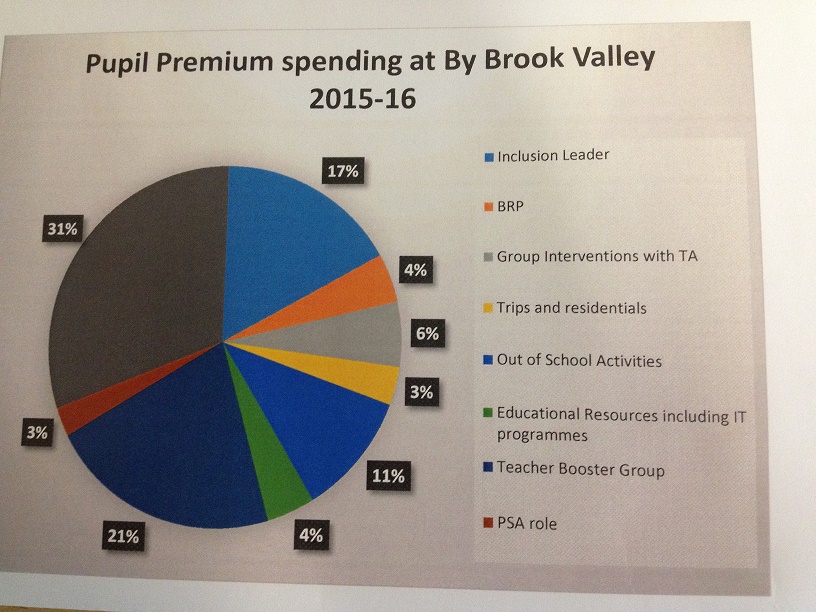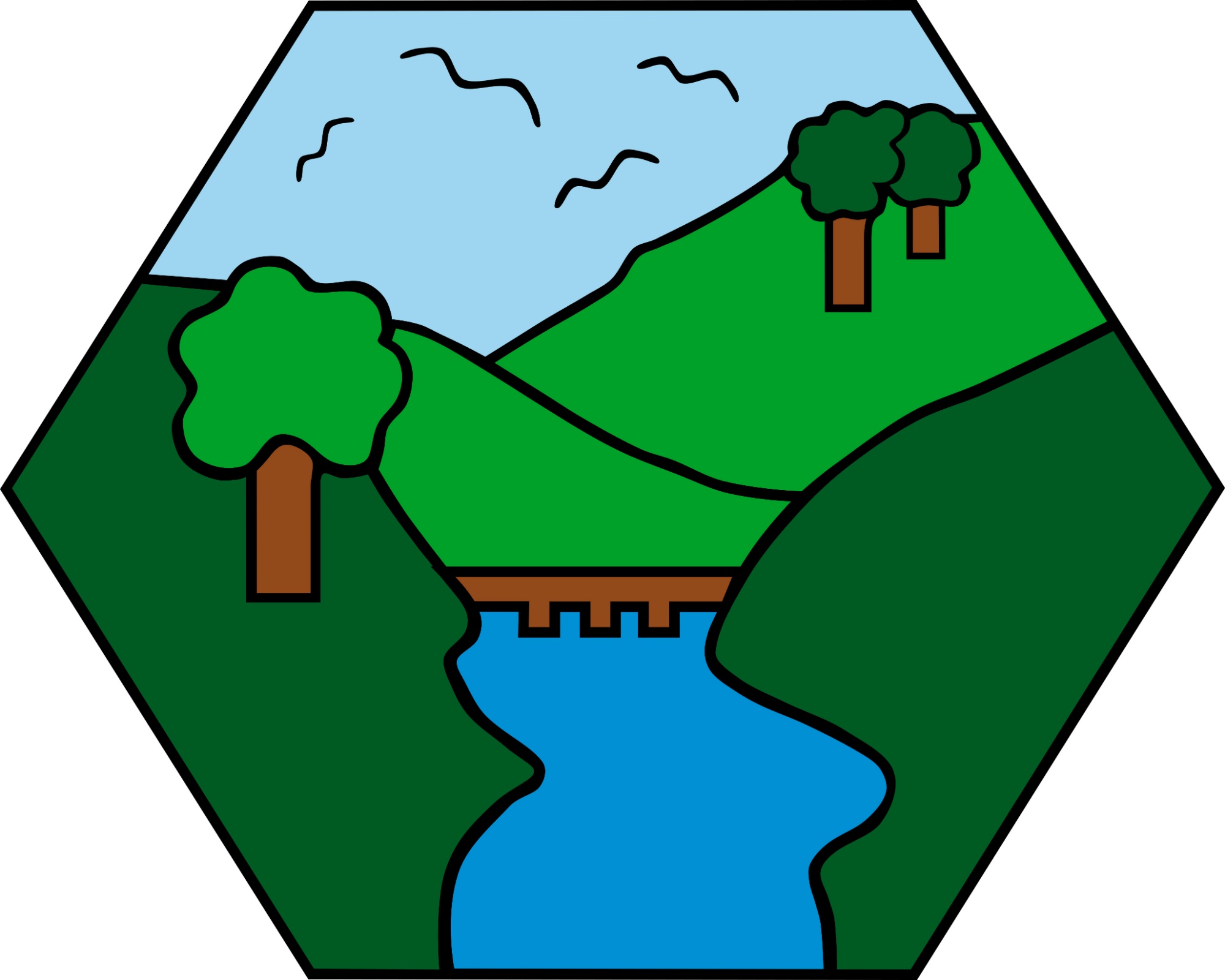2015-16
Pupil Premium Report July 2016
Spending and Impact Summary
- We have 14 pupils in receipt of Pupil Premium funding this is 7% of the school population (this includes 2 looked after children).
- We have 5 pupils in receipt of Forces Premium this is 3% of the school population
- We received £23, 780.00 in Pupil, Forces Premium and LAC funding in 2015-6.
- As Pupil Premium numbers are very small in each year group it is difficult to measure gaps; however pupil’s attainment this year shows that the gap is closing in years 2, 4 and 5 in reading, writing and maths. There is only 1 PP pupil in year 4 this pupils is higher achieving than their non PP peers. In Year 6 the gaps are due to 2 of the 3 PP having significant SEN needs.
- The attainment gap between PP and non PP pupils are widest in writing.
- In years 1-6 in reading 92% of PP pupils made expected or more than expected progress and 86% of PP pupils met the End of Year Expectations in reading (EYE).
- In years 1-6 in writing 73% of PP pupils made expected or more than expected progress their peers and 50% of PP pupils met the End of Year Expectations in writing (EYE).
- In years 1-6 in maths 79% of PP pupils made expected or more than expected progress and 57% of PP pupils met the End of Year Expectations (EYE).
- 71% of the PP pupils have a good level of overall attendance this academic year (their attendance is at or above 95%)
- PP pupils have made more progress in reading than other subjects this academic year.
The number of children in receipt of Pupil Premium in July 2016 is 14, which is approximately 7% of the school. 14% of our Pupil Premium pupils are also on the SEN register, 57% of the pupils in receipt of PP also have social, emotional and/ or medical needs (SEM).
Table to show numbers of Pupil Premium (including LAC) & Forces premium at BBV in July 2016
|
|
YR |
Yr 1 |
Yr 2 |
Yr 3 |
Yr 4 |
Yr 5 |
Yr 6 |
|
Pupil Premium ( incl LAC) |
0 |
1 |
3 |
3 |
0 |
4 |
3 |
|
Forces Premium |
0 |
1 |
2 |
0 |
1 |
1 |
0 |
|
Total |
0 |
2 |
5 |
3 |
1 |
5 |
3 |
Year Group Comparison-measuring the gaps 2015-16
Summer Term (The numbers of PP pupils including forces pupils)
|
|
NOR PP |
PP Reading |
Non PP reading |
PP Writing |
Non PP Writing |
PP Maths |
Non PP Maths |
|
Y1 |
29 2 |
100% |
93% |
0% |
72% |
0% |
72% |
|
Y2 |
26 5 |
80% |
84% |
80% |
72% |
80% |
84% |
|
Y3 |
29 3 |
100% |
86% |
66% |
86% |
66% |
82% |
|
Y4 |
28 1 |
100% |
93% |
100% |
79% |
100% |
86% |
|
Y5 |
28 5 |
100% |
100% |
60% |
78% |
60% |
70% |
|
*Y6 |
26 3 |
33% |
81% |
0% |
67% |
33% |
74% |
*Y6- percentage who meet expected standard in NC tests
Intervention groups and 1:1 support for Pupil & Forces Premium Children 2015-6
Also see Pupil Premium tracking sheet which shows individuals progress and intervention programmes.
All children in receipt of Pupil Premium are usually on an intervention programme or one to one targeted support. The provision is altered according to need following pupil progress meetings which are held three times a year. All parents are continuing to receive letters informing them that their child is currently on an intervention programme. Pupils also have an intervention log which remains with their reading record and informs parents of the weekly learning outcome of the intervention programme. The log is signed by the TA who is delivering the intervention, the class teacher and the child’s parent so all stakeholders know what the expectation is for weekly learning.
A book scrutiny carried out in June 2016 showed that most PP/FP pupils had next steps relating to targets. PP/FP pupil’s work was generally as well presented as Non PP/FP pupil’s work and all pupils had made responses to marking. Several PP and SEN pupils regularly used alternate methods of recording their written work.
This year we have used a Play Therapist to support some of our pupils in identified vulnerable groups. Play therapy uses a variety of therapeutic creative approaches allowing children to explore feelings and behaviours that can be difficult to verbalise, that they are not fully aware of in the conscious mind, or that they find difficult to understand and cope with. We have used this approach for 4 pupils who are not realising their full potential academically, or socially or suffer from anxiety, stress or phobias.
In January 2016 Mrs Slade one of our experienced TA’s took on the role of Parent Support Advisor’s (PSA) her role is to support parents to get the very best from school by providing support, advice and information. Mrs Slade was available on Fridays for appointments to help parents with any worries they may have in relation to their child’s education, behaviour or attendance and provide support on how best to deal with it.
Interventions 2015-6
|
Intervention |
Duration |
Frequency |
Cost |
Notes/ Impact |
|
Better Reading Partners-BRP
|
20 weeks |
3 times a week for 20 mins |
£1, 061.00
|
2 x Yr 6 pupils – 50% achieved expected standard. Both pupils improved their reading ages by 6 months in 3 months ( YARC assessment of reading test) 1x Yr 5 pupil- achieved EYE 2x Yr 3 pupils-both pupils did not achieved EYE but they improved their reading ages by 12 months in 6 months7 ( YARC assessment of reading test) 1 x Yr 2 pupils-did not achieve EYE but made good progress from their starting points. |
|
Phonics Yr 1 & additional literacy support in class |
Term 1, 2 and 3 |
Daily phonics session 20 mins Daily in class support. |
£423.00 |
50% of class had some phonics intervention work until Feb 2016 including PP pupil. 90% of pupils in the class passed the phonic screening test. 100% of Forces pupil passed the phonic screening test. The PP pupil did not pass the phonic screening test. |
|
Pre teaching/ revision of English and Maths |
On-going |
2 x 30 minutes per week |
£287.33 |
2 LAC pupils; both pupils made good progress. Yr 1 pupil achieved EYE in reading. Yr 2 pupil achieved EYE in reading and maths.
|
|
Dyscalculia Toolkit |
2 terms |
3 times per week 10 minutes. |
£100.00 |
2 pupils, I x yr 1, 1 x yr 2 Both pupils made good progress but attained just below EYE ( developing +) |
|
Sounds Discovery- Step 1, 2 and 3
|
20weeks |
Daily for 20 minutes |
£574.64 |
3 x year 4 (1 SEN) working on Step 2 and Step 3 of the programme. All pupils made expected progress from starting points but did not achieve EYE. 1x year 3 SEN pupils working on step 2- pupil made 12 months improvement in reading age in 6 months ( YARC assessment of reading)
|
|
Reading/ writing/ Maths Interventions Year 6- LB-Teacher |
Termly review |
Twice a week for I hour |
£7, 605.00 ( £5000.00 from PP budget) |
YR 6 6 pupils (2x SEN& 1x PP) reading intervention; focused on comprehension. 83% achieved the expected standard in national curriculum assessments. 5 pupils ( 2x SEN &1x PP) - writing intervention 50% achieved the expected standard in the national curriculum assessments 5 pupils- maths intervention 100% achieved the expected standard in the national curriculum assessments |
|
Play Therapy-provided by Jackdaw Play therapy. |
Periods vary according to pupil need. Each pupil has had a minimum of 12 sessions |
1 x 1 hour session per week per pupil |
£7,410.00 |
4 PP (2 x LAC) pupils are working with the therapist one pupil also has a CAF is receiving weekly play therapy. Pupils enjoys sessions and mental and emotional health issues are being addressed. Therapist has met with parents to review sessions after 8 weeks and written reports to support applications for EHCP. |
|
Total interventions |
|
|
£14, 855.97 Costs up to July 2016 |
Costs based on highest TA grade salary/ or cost per hour for play therapy. |
Other Costs
|
Provision |
Duration |
Frequency |
Cost |
Notes/ Impact |
|
Inclusion Leader |
Academic year 2015-6 |
1 day a week |
£4000.00 |
The inclusion leader tracks all pupil premium children and enables all children who are not progressing or attainting as expected to be identified and given the appropriate provision. The inclusion leader attends all pupil progress meetings and liaises with teachers and TAs to ensure the correct provision is put in place. She meets regularly with TA’s to review intervention groups and to feedback to teacher Headteacher, and governors on the impact of interventions. |
|
PSA Role |
January 2016-July 2016 |
2 hours per week |
£632.13 |
PSA has worked with 5 families, and has improved outcomes regarding attendance for 2 families where this was an issue (1 pupils attendance increased from 81.1% to 89.6% in 9 weeks). She has signposted families to other organisation such as Citizen Advice and Relate. |
|
Trips and residential |
Academic year 2015-16 |
On-going |
£794.90 |
We fund residential and other educational trips for children in receipt of the Pupil Premium to allow them to have equal access. |
|
Out of school activities |
Academic year 2015-6 |
On-going |
£2,497.00 |
We fund after school clubs for some pupils in receipt of the Pupil Premium to allow them to have equal access. |
|
Educational resources |
Academic year 2015-16 |
On-going |
£1000.00 |
Materials purchased to support the development of intervention programmes such as high interest low level reading books for BRP. Further sounds discovery training for Inclusion leader (£55.00) ‘Nessy’ Internet based programme to support dyslexia students ( £150.00 per year) |
|
Total provision |
|
|
£8924.03 |
|
|
Overall Total |
|
|
£23,780.00 |
|

Planning for 2016-17
We will have a significantly reduced budget for Pupil and Forces Premium as we will only have 9 pupils eligible for Pupil Premium and 5 pupil eligible for Forces Premium and 2 LAC children. This will mean we will receive approximately £16,020.00 in funding which is a reduction of £7,760.00 from this academic year.
We will therefore need to cut the PSA role and review again in January 2017 and we will also significantly reduce our use of a play therapist. The Inclusion Leader has been on Sand Tray Therapy training in June 2016 and will cascade this training in Term 1 to identified Teaching Assistants, this will support pupils with social, emotional and mental health needs and will mean that school will save money on buying in play therapy services. Sand Tray Therapy is suitable for children with lower level issues such as separation and divorced, mild anxiety, stress or phobias, loss or bereavement. These pupils can have Sand Tray Therapy a therapeutic intervention provided by staff. A qualified play therapist will only be used for pupils with more significant issues such as adoption, fostering or severe trauma and pupils at risk of exclusion.
Written by Shirley Stevens Inclusion Leader July 2016

